Boeing has selected STS Aviation Services and its Birmingham site for the conversion work on the United Kingdom’s fleet of five Wedgetail Airborne Early Warning (AEW) Mk1 aircraft.
The conversion work – turning commercial 737 Next Generation airliners into a modern airborne battle management fleet – will create more than 100 highly skilled jobs in the West Midlands: 90 with STS Aviation Services and 30 more with Boeing, say the firm in a press release.
The work was previously announced for Marshall Aerospace and Defence Group, the firm however have withdrawn from the project. Marshall remains a valued supplier to Boeing and the two companies will continue their partnership on other programmes like the P-8.
The Birmingham-based employees of STS Aviation Services will join the 50 Boeing employees already working on the Wedgetail programme throughout the UK, including at Bristol, Yeovil and RAF Waddington. The new work will be done at the hangar formerly operated by Monarch Aircraft Engineering at Birmingham Airport.
“The Royal Air Force (RAF) announced in March 2019 a contract for five Wedgetail aircraft, guaranteeing the UK the world’s most effective AEW&C aircraft at a fixed price. The Wedgetail’s advanced radar and 10 state-of-the-art mission crew consoles can track airborne and maritime targets simultaneously, allowing crews to direct offensive and defensive forces while maintaining continuous surveillance of an operational area.
The Wedgetail is a proven aircraft that is currently in service around the world, including by Royal Australian Air Force, which used the aircraft on operations in the battle against Daesh in Iraq and Syria. It has been continuously improved since its inception, and it is the most capable aircraft of its type.”
“We are thrilled to be partnering with STS Aviation Services in Birmingham on the Wedgetail,” said Anna Keeling, managing director of Boeing Defence UK.
“Wedgetail will provide the UK with the most advanced and reliable aircraft of its type in the world at a fixed price, and this work will provide good jobs for the many skilled aerospace engineers and mechanics in and around Birmingham.”
Boeing and STS Aviation Services, which also operates a facility in Newquay in Cornwall, have already started recruiting in key areas for the new work in Birmingham.
“Being awarded this contract is not only great news for STS Aviation Services and Boeing, it’s also great news for the Birmingham region, and a much-needed jolt for UK aviation,” said Mick Adams, senior vice president and CEO of STS Aviation Services.
“We have a long and favourable history working with Boeing, and we’re excited that this work will be completed at our new state-of-the-art aircraft maintenance facility in Birmingham.”
The first two US-based aircraft have been stripped to their frames and will arrive in the UK later this year.
The first Wedgetail will be delivered to the RAF in 2023 and will based at RAF Waddington in Lincolnshire.
STS Aviation Services joins other UK suppliers on the programme: Leonardo, which will deliver an integrated Defensive Aids System from its operation in Luton, and a project management and design team from Ridge, which is working with Boeing to design the facility that will house the Wedgetail fleet.



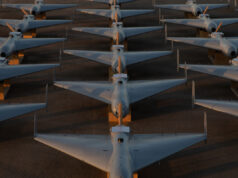
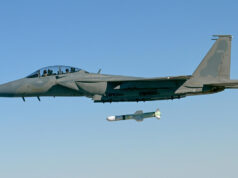
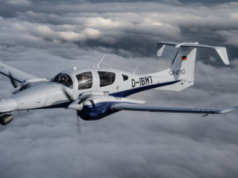
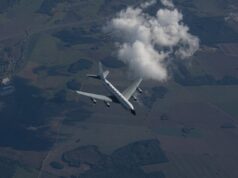
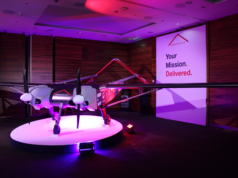

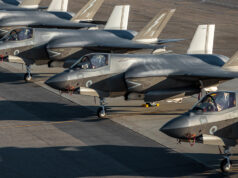
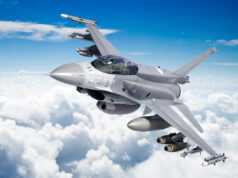

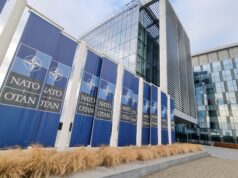

Good news for the West Midlands. Work could have gone to STS Florida – but I guess it was part of the procurement deal to give the work to a UK site.
Given our current crisis, could these 737’s be bought from B A and/or Virgin?
No for one very simple reason, neither British Airways or Virgin operate the Boeing 737!
British Airways operate Embraer and Airbus narrow body products. Virgin doesn’t operate any narrow body types.
BA retired its last 737s from the Gatwick based fleet about 5 or 6 years ago. However, the point that there will be many, many surplus airframes currently could drive down future prices for good, used aircraft
TUI have some brand new 737 Max parked up at Manchester. Might need to change the flight control software! Maybe military versions could override the issues?
Thank you gentlemen.. That’s what I get for wading in without checking! stay safe.
Not really, the issues with the 737 MAX relate to trying to fit bigger engines on an Aircraft that has short undercarriage legs whilst allowing pilots who have a type rating on previous 737 models to start flying the MAX without specialised training.
The reality is Boeing got greedy, they have known that they needed to develop a new Narrowbody solution but the Airlines were still keen to buy ever more efficient variants of the 737 despite it being a 1960’s design with all the associated limitations.
Same story as Bae using Comet as Nimrod.
Kind of, there were myriad issues with Nimrod 2000 and some of them like that with the wing fitment was used to hide the actual underlying project management failures.
That issue for example was played up to hide the underlying project management issue where Government had forced the project team to use the Rolls Royce BR700 derived engine rather than their preferred choice of the GE CF34. Most of the planning work for Nimrod 2000 had been done using the GE CF34 as the preferred baseline power plant. The reason for this is the engine could go in the current wing without that structure needing major modification. The GE CF34 powered Nimrod offered good performance improvements without having to make major structural changes. The plan was to do a refurbishment of the old wings and fit the GE engine. To fit the RR engine required so many structural changes it was easier to design a new wing. Now the alignment issue was anticipated, each airframe was hand made and exactly the same issue occurred when the Nimrod MR1 was developed.
The actual issue was in the project management where the chosen sub contractor was found not to be up to doing that specialised hand fitting work to fit the new wings. Following that the certification work required was underestimated by the Project team. Saying the wings were the wrong size was to save blushes for the Project team and the Government over decisions made that were then not managed properly.
Absolutely Fedaykin, the original MR1 was built at a time when aircraft were built in one place, from an airframe perspective.
The airframe would be formed and when the centre section was completed, they took the measurements and build the wing centre box.
Using the GE engine would certainly have eliminated many issues that plagued the MR4A rebuild.
BAE systems should have pulled the plug on the program when the government insisted on RR/ BMW engines, sparking a massive re design.
It would have been a tremendous asset, way ahead of the P8 in terms of range and weapons load.
But it would still have fallen into the trap of a tiny bespoke fleet, requiring massive investment to upgrade and all on the UK tax payers shoulders.
Your final paragraph is the key issue for me when you strip away all the noise around the Nimrod 2000/MRA4 programme. For all the paper advantages the UK would have been left with a small fleet of custom airframes from a single supplier.
What is interesting is Nimrod wasn’t even BAe’s preferred solution, their internal studies had concluded that FLA (A400M) would have been a better base platform for development but concluded that they couldn’t wait for it (ironically considering the later programme delays). In the desire to keep Woodford open they cast around for a different solution eventually picking Nimrod knowing it would appeal to Whitehall and Politicians with the idea that refurbishing airframes was the thrifty way to go. I think they made the wrong choice and picked an alternate airframe, personally I think the Boeing 757 but that might have caused issues with Airbus. The A310 would have been the obvious choice from the Airbus product portfolio in that timeframe (the A320 was too new).
Their is one silver lining to Nimrod 2000 in that it helped de-risk the P-8a as the mission system Boeing used for that solution is derived from the one the UK paid for to be fitted to Nimrod!
Any reason why this radar can’t just be added to the P-8? Why have 2 airframes when you can have 1.
Because they are fundamentally different aircraft based upon different 737 variants. The P-8a has had so many changes including thicker skin on certain parts of the airframe and a bomb bay that you could all but call it a new design.
The work required to rework the P-8a airframe to accept the radar and mission systems of the Wedgetail would be so costly to not make it worth the exercise.
Because you can’t do both jobs at once due to different operating areas / profiles and you don’t want to drag that much parasitic weight to the middle of the sea for ASW and vice versa given both roles need endurance.
Could you not put the sensors of the P8 on to the Wedgetail and move the weapons load out and sonar buoys on to a drone? Allow the latter to do the low level manoeuvring and keep the enhanced “WP8” for battle space management. Cheaper airframe and one reduces fatigue (easier flying) whilst simultaneously keeping humans away from the sharper edge of things?
Even if they some how managed to put it all onto a single 737 it would become so cramped the systems and consolez, available weapons etc would have to be drastically scaled back turning it into a jack of all trades but master (useless) of none. That and it would likely cost more then buying the individual aircraft.
A bit difficult to double hat if you want your aew supporting nato air policing over eastern europe or off syria/iraq while the P8 is needed off the north coast of scotland, towards Greenland and Iceland or in the gulf…
Unless you can expect both platforms to be in the same location at the same time then you need enough to cover both roles which makes having them fitted with both mission kit is a waste.
Considering the P-8 has been specifically bought for maritime patrolling and the wedge tail is primarily for the AEW and battle management role…. its an entirely different sport. There’s a bit of a small crossover but why invest in the two if you want to mash them together?
In April 2020 the RAAF marked the 10 years of service of the Wedgetail in Australia
Definitely a proven platform
I would be intrigued to know how the build quality and consistency of these UK re-manufactured aircraft stacks up against those built/converted by Boeing in the US. For the UK workforce, they will be doing this for the first time
Why would you assume, or appear to assume, that theremay be a potential problem with UK conversion vs US conversion? Why?
There have been 14 Wedgetail produced to date, 14 ‘green’ 737-700NG airfames produced by Boeing, 4 conversions in the US and 10 conversions elsewhere.
For the RAAF, the first two E-7A were converted in the US by Boeing, the following four were converted here in Oz by Boeing Australia.
For Turkey, first in US, next three in Turkey, for South Korea the same happened, first in the US and next three in South Korea.
Here in Oz the benchmark was set and it appears that Turkey and SK followed the same path, I’m sure the poms will have enough info and assistance from both Boeing in the US and possibly the RAAF on how to perform a successful conversion.
Cheers,
I don’t assume anything. I just wonder how consistently one tiny fleet built in one country mirrors another fleet built elsewhere, particularly when a Boeing partner is heavily involved. I don’t worry, the UK has a long and illustrious history and record of designing, building and updating very complicated aircraft – it was news to me that Boeing wouldn’t be doing ALL the work themselves
In fairness Boeing is the main contractor and will build the aircraft but Northrop Grumman and others will make the important electronic bits that turn it into AEW aircraft
The RAAF Wedgetails have just reached a decade in service. There is a good article here:
https://adbr.com.au/raaf-e-7a-wedgetail-marks-a-decade-in-service/
… which covers their problem birth, to their recent ME successes, and some information on the upgrades expected.
It would be interesting to know what the RAF have planned for their version of the Wedgetail and whether some or all of the planned RAAF upgrades are already in sync with the system modifications.
The Wedgetails we will be getting will most definitely get the Mode 5 IFF at the start. The mode 4 although not considered obsolete, its crypto is suspect borderline to interception and hacking. It is after all over 20 years old, which for crypto is a lifetime. The other mods under the Phase 5A program, such as better target identification, mission computing upgrades and increased situation awareness through larger visual monitor displays are quick fixes which will be ready by the time we start to build our Wedgetails.
The one big upgrade yet to be announced is the change from Gallium Arsenide (GaAs) to Gallium Nitride (GaN) in the radar’s transmitter/receiver modules. This is a very important development in any PESA or AESA radar. It allows the radar to transmit for longer at higher power over a broader bandwidth whilst also generating significantly less noise than the GaAs modules. In real terms this means the radar can detect smaller “stealthier” targets against background noise further away.
I don’t get your logic Julian….. Its about quality and not quantity, just because Boeings home is in the US it doesn’t mean firms over here will be unable to achieve an extremely high standard of work.
If you want to nit pick…… let’s talk about the QC at Boeings factories in the US over the last few years where staff have become whistle blowers and publicly said the quality of the work there is shoddy at best and downright dangerous at worst.
Just a thought – could an airbus equivalent be used in the same role? I understand you could never do that with a P8, what about a Wedgetail?
nathan -Nothing is impossible if your prepared to spend the money – the A320 seems to be the 737 equivalent so should have the size and performance.
You’re correct Paul but it could be more of a political decision rather than a cost/quality decision.
They could indeed go down the Airbus route…. not a bad idea actually as there are numerous factories in Great Britain that produce components for and major parts of ALL Airbus aircraft but the decision to go Boeing could be political rather than anything else.
Please stop putting down the UK
Praise it up for a change
julian1 i know you dont mean any of that but that comment sounds just like a typical left wing comment
that’s very imaginative of you to construe my innocent question as “left wing”. I’m simply wondering whether a newly assembled workforce will build a tiny fleet of wedgetails to the same standard/consistency as Boeing in the US or anywhere else. It’s a reasonable question – how will UK examples differ, particularly when the production run is so short. Perhaps Boeing will parachute in a number of experienced engineers to oversee.
A British workforce did a pretty good job on the Apache actually making it better then the original Boeing one.
Plus I think you will find that each aircraft will be pretty country specific due to different systems etc
That’s okay Julian 1 it is your opinion! Barry’s credentials are obvious!
Getting into name calling and a tit for tat petty argument with him doesn’t make either of you look good……..not only that, he’s entitled to his own opinion even if you don’t agree with it.
Thanks for that Steve…save that I haven’t disagreed with anyone’s opinion! On the contrary, I have affirmed that one is entitled to have a different opinion. Neither have I indulged in name calling or tit for tat petty argument. I can only assume that you have confused me with someone else!
It’s a very reasonable question. Firstly, it’s bound to be more expensive than to have them all built by Boeing in the US. Also, in my experience with Voyager, the contract was first given to Cobham and it proved extremely difficult to get them to ramp up adequately and understand and follow the Airbus drawing structure. In the end, so many Airbus people had to come over to ‘show’ Cobham how to do it that Airbus decided to terminate the contract and take the work back to its plant in Spain. A similar situation arose with the KC-30 contract with Qantas Aviation in Oz, except that there the Australians persevered and in the end were successful. And why has Marshalls, the obvious first choice, withdrawn? I wish STS well but it doesn’t inspire me with confidence
We don’t know why Marshalls pulled out and we probably will never know either but I have an issue with your comments….. you’re also insinuating that British engineering firms aren’t good enough, that they’re incapable of producing top quality technology.
If you’re going to spout anti British toilet, I’d rather you don’t please.
Hi Steve…re Marshall’s recent decision…see below my post with Flight link of 2 days ago! Flight magazine is an impeccable source for aviation news…I have been reading it for 50 years!
Nothing of the sort if you read my post correctly! British firms can engineer products they design as well as anyone else can. I’ve had a lot to do with Marshalls and Cobham, both excellent UK engineering firms. It’s when they have to ramp up production using other people’s designs at short notice that the problem arises. Same happened to Qantas in Oz. Marshalls struggled with both Airbus and Boeing projects before eventually getting them right. Cobham as I’ve already mentioned had severe issues with Voyager. It doesn’t make them bad companies. It’s just that it’s bloody difficult and usually takes a long learning curve to get right. And on such small production runs you’ve got to ask whether it’s worth it. I personally from my experience don’t think it is. But as I said, I wish STS the best of luck and wish them every success.
From personal experience I can categorically state that Boeing release shoddy products, which only pay lip service to the contracted MIL standards. A good example is the recent (5 years ago) purchase of the Mk6 Chinooks. All were found with faults to some degree. Some where found with un-identified tools under the floors including lots of drill bits and swarf. To be brutally honest the UK’s QA standards are much better and may reflect why our prices are higher.
I don’t see the problem fella, British aerospace engineers are among the finest in the World, they’re that good that many of them are poached by overseas companies and offered big big salaries to entice them.
I know nothing about AWACs- what are these designed to replace and are they doing it with enough capability and numbers (I think I know the answer already do that last bit)?
Hi Levi,
They are replacing the RAF’s E-3D Sentry based on refurbished 707 airframes. The RAF did not get to undertake the last E-3 upgrade that was applied to US and French aircraft so ours are struggling.
We originally purchased 7 E-3’s but only 5 now remain. One is used for training, although recent reports suggest that availability isn’t good – not surprising give the airframes must be getting on fo 40 to 50 years old as the last new build rolled of the production lines in 1978… Last deliveries of rebuilds was 1994.
The Westinghouse radar on the E-3 is at the limit of its effectiveness in todays operational conditions, even with the upgrades the US and French have applied and Wedgetail is looking increasingly like its the way to go.
Given the current operational fleet of 5 E-3 the current order represents a mainenance of numerical capability – rather unusual these days.
Cheers CR
Exactly what I was after, thank you. Not often we see the MoD make smart and uncompromised acquisition decisions
We actually did something really smart for a change, in that we embedded Sentry crews on the RAAF Wedgetails prior to purchasing them. This means rather than the manufacturer’s polished blurb on how good their kit is, they got a first hand un-biased experience of operating it, through from training to operating over Iraq/Syria. From what I heard, the performance is a game changer compared to Sentry. They got a very good look at some Russian aircraft that went their on exercise/trials.
The old Northrop Grumman AN/APY-1/2 is a very good radar used on the Sentry. It has good target discrimination in noisy environments, plus the range is very good. However, it is a mechanical pulse doppler radar scanning at six revolutions per minute. So when targets are being followed, they have a slow refresh rate. It transmits a singular wide pulse, so the transmission energy is more spread out. Compare that to the Wedgetail’s Multi-Role Electronically Scanned Array (MESA) radar, it’s like comparing chalk and cheese.
The MESA is located within the “top hat” on the aircraft’s roof. It provides a full 360 degree view unlike Saab’s Erieye. But admittedly the range is reduced front and back compared to the side (due to the smaller number of transmitter/receiver modules). The radar is a fully digital active phased array system. This means it can sweep a 120 by 120 degree sector of the sky in less than 2 seconds (depending on the range you want, i.e. longer range will require a longer duration). But instead of doing one sector at a time all four quadrants (N, E, S and W) can be scanned simultaneously. If a target of interest pops up, the system can pin point it with a dedicated narrow beam, whilst still doing the four quadrant scans. The system is capable of doing a number of simultaneous pip point tracks whilst still scanning. Funny, no-one is publishing that data!
Personally, I think the MoD played it safe and went with the best system currently on the market. Perhaps it would have been better if we teamed up with France etc, using an Airbus frame and an airborne version of the MPAR radar. However, it would have been at least another decade away in development and for the vast majority of joint projects with France has always ended in tears. The MPAR radar is at the forefront of airborne radar technology as has a long development potential. So unlike with Sentry where the back end of the radar was upgraded, it ever developed the front end. MPAR has the capability for both to be upgraded in the future when required.
And now I’m up to speed on AWACs, thank you
Thank you DaveyB ,very informative
In 1987 the RAF stationed a complete E3 crew+ in Geilenkirchen with the NATO E 3 force for over 2 years to gain operational experience with the type and contribute to the NATO Force. They were withdrawn as the first E3s were delivered to Waddington. In addition a team of RAF engineers (CSDE) were positioned in GK maintenance and engineering to ‘understand’ support aspects. In addition a number of future Station and Squadron Execs were trained on the E3A at the same time GK to further help the UK force build up. They proved a great assest to the RAF to help the Squadron quickly build to IOC and also to the NAEWF to bring English speaking airborne experience to a very young organisation.
You’re correct that we’re getting the same number of E-7 as we have E-3, but its worth mentioning that the E-7 is lightyears ahead of the Sentry. For once we’re getting an effective increase, rather than the MoD’s usual approach of “It’s twice as good so you can have half as many”.
Hi James,
I couldn’t agree more. That’s why I said we’re the same ‘numerical’ capability as, from what I have read, the new radar is indeed well up to modern standards and the RAAF are well pleased with their new capability.
A very good purchase by the UK To get the best use form the Wedgetail and P8, the UK should fit the tankers with booms. I would also like the RN to fig CEC to their ships.
It’s also worth mentioning the availability of the 5 aircraft we have is very poor I live under the RAF Waddington flight path and over the past 5 years I’ve seen less and less of the E-3 in the air!
So yes big capability step up.
RAF E-3D didn’t use refurbished 707 airframes, the RAF got the last new built 707 ever made Boeing line number 1012 which became ZH107.
Thanks Fedaykin
I didn’t realise that, I always assumed they were remanufactured examples
No very much new build primarily because whilst Boeing had delivered the last Civilian 707 in 1978 from 1977 they continued to produce the airframe for the USAF and NATO as part of a joint order for the E-3A/C through to 1984. The Saudis then ordered whilst the line was hot five E-3A and eight KE-3A tanker aircraft with deliveries between 1986 and 1987. The UK then decided to buy the E-3D in 1987 after the failure and of Nimrod AEWC and the French in need of a similar type after a failed indigenous program of their own tagged onto the RAF order.
The old E-3 is a bit geriatric indeed, being based on a 707 airframe, but it’s served us well for years. It’s good that we’re getting a more modern airframe with the Wedge Tail and a cabin packed full of truly state of the art sensors, we are long overdue an upgrade.
I wonder just how much they are saving by doing this compared to using a new air frame.
Some of that saving is going to be lost by doing the conversation and long term all of that saving is going to be lost through the hulls aging faster.
The MOD should search the open market , as the 2 preowned ones they are going to use are almost new , we could perhaps make a saving or increase the over all numbers
Its already been announced that a few of them would be 2nd hand air frames from the commercial market.
I have no idea what the depreciation is like on aircraft, but i am guessing a near new frame won’t give the saving that they are looking for over buying a new one.
I don’t think this is about savings, the E-7a is based upon the Boeing 737-700ER which is out of production. Whilst Boeing can make more new builds based upon that variant the lead in time will be longer due to production differences. By using a couple of nearly new Airframes the delivery time won’t be delayed by waiting for the new builds and allow the RAF to start the induction process.
Good news, I’m glad that the Midlands are getting these jobs- I hope we can expand this into a more sustained load of high-specification work!
Out of interest, anyone know anything about Marshall Aerospace and Defence Group? Seems strange to me that they’d drop out, unless on closer inspection they were found to not be up to the job or something?
MADG based just outside Cambridge. See their Website for info. Been around for a long time and specialises in C130 re-furbs. and maintenance. Sub contractor for Boeing.
Thanks for the pointer
Marshals are supposed to be relocating to RAF Wycombe in the near future
See Flight article:
https://www.flightglobal.com/defence/wedgetail-conversion-work-was-commercially-unviable-says-marshall/138496.article
Thank you sir!
It’s possible it became impossible to do the work, on top of their existing work, while planning their relocation from Cambridge Airport to a new site.
The move is a bit odd as I believe that they have built a new engine test facility at Cambridge. I wonder if the inevitable contraction of the aviation industry, post virus, will make them rethink their plans.
Not so mad, prime real estate for housing in Cambridge:- prices their are not too dissimilar to the ridiculous prices in London.
Not far from either the railway or the rapidly expanding huge biomedical park.
Developers have been after it for years.
RAF E-3 are young by Boeing 707 standards. I wonder if Wedgetail radar could be installed in them? Greater range & height than a 737, I would have thought. Plus of course, we have the airframes, so would not have to buy them in.
Sounds something like the argument used to justify the nimrod AEW Mk3……
My first thought when I read that too, Andrew.
A dangerous road.
the engines are likely ancient and real gas guzzlers….plus 4 of them
I would imagine the issue is how old the design and the airframes themselves are makes them maintenance intensive. It’s not a huge issue for the USAF to have them spending a lot of time in maintenance, they have 30 odd E-3s and about 300 aircraft using the same basic airframe. When you’ve only got 5 though, having one out for extended maintenance is a big hit to operaations.
But more importantly, Wedgetail is a tested, integrated, and operational design. Installing the kit on a Sentry would require the bulk of the certification and testing to be redone, using up a lot of time (likely several years) and money.
My understanding from what I have read is that the RAF E-3D have been used quite hard, plus much of the aircraft flight instrumentation will be out of date (30 to 40 year old aircraft). So the first thing you would have to do is a full strip down and survey to see what was needed by way of repair and replacement and life extension (no point putting a new radar on an airframe that develops faults in a few years time!).
You would then need to rebuild the fuselage as the radar mountings are in completely different positions. So the airframe certification would need doing on structural grounds and putting a new radar on would change the flight characteristic dramatically as well. So structure and flight characteristics need to be included in the certicifaction process – hugely expensive for 5 aircraft.
Na buying an off the shelf design that someone else has already certified is definately the best way forward. Plus I’d be getting nervous about cutting yet more holes in an old airframe, especially after patching up the previous structural changes..! Speaking as an engineer, that is.
Cheers CR
I don’t think they even have glass cockpits – upgrading that is a marathon job in itself
Yeh, even Microlights have glass cockpits these days 🙂
So either the RAF uses ‘old hands’ or has to specially train pilots not to stuff their fingures through the instrument panel 🙂
I thought we were giving Nato some of our old RAF E-3 Sentrys? And some of our old tankers? I’m sure I read an article ages ago about it.
Old tankers?
The VC10s and Tristars are long gone I believe.
We only have 14 Voyager, 9 of which are in service. The others are hired out I believe.
I think some of the Tristars are at Bruntingthorpe………apparently they have been purchased by an American company who do contract refuelling for USAF
Wow. Still around? I remember flying in the cockpit of a Tristar when I was cabin crew. Ancient!
Six of the remaining airframes were purchased by Tempus Applied Solutions in the US with the intention of returning three to service to offer support to the USN and other customers much the same as Omega air. The other three airframes would be used for spares. So far they haven’t moved from Bruntingthorpe…
Probably providing cover due to the continued issues with the USAF’s new tanker the Boeing KC-46
No that isn’t the reason, Tempus Applied Solutions purchased them to provide commercial tanking services to the USN and other customers. The USAF don’t operate any types that could receive fuel from the Tristar.
Hello, my first comment on the site!
This is probably a stupid question but what is the difference between the Posideon and Wedgetail?
Thanks!
If these 737s are to be converted in the UK will they be fitted with a boom refuelling receptacle….or will they save money on this one?
They are like the P-8a getting the boom receptacle, the RAF has accepted that there is a compelling case to get the boom on the A330 tankers and are exploring ways that this could be done…(basically can some money found). In the meantime the P-8a and E-7a will use allied tanking assets.
Very interesting….were the RAF against this when the Voyager was first mooted? As you say, there is now a compelling case for a boom. Rivet, C17, P8, E7 and F35A (if it were to happen…but unlikely now)…as well as interoperability with USAF assets. I assume that there would be little design work to be done on the Voyager as the Australians (& French) already field booms on their A300s. Perhaps trading Sentinel for booms might be a way forward?
Depends who you talk to, I did many years back spoke to some pilots from 8 Squadron who were strongly of the opinion that they wish that the MOD had consulted them when the decision had been made not to adopt the boom for RAF A330mrtt.
Apparently the RAF and MOD didn’t want to add the cost of a training stream for boom operators which rather shows the level of penny pinching going on.
Not too much design work would be required and certification would be easier due to Airbus having extensive paperwork that can be called upon.
Money is not really the key issue. AirTanker has offered to extend the PFI facility and fund it themselves. The MOD would be prepared to do this. The RAF accepts there is a case for it. But senior Defence Chiefs are not prepared to formally endorse a requirement without which nothing can happen. Why? I don’t know. Airbus has even offered to take back some of the Voyagers not on the RAF’s core fleet and replace them with re-treaded used A330s fitted with booms (easier and cheaper to start from scratch on a new plane than convert an existing one) and it would end up costing the RAF ‘peanuts’ (in relative terms). Baffles me.
We’re getting 737 wedgetails? Isn’t that a bit more than we need?
No.